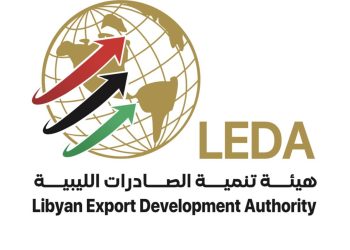By Sami Zaptia.

London, 27 August 2020:
- Tripoli government issues decree to allow entry of imports without LC payment
- Decree aims to keep supplies flowing and prices down
- Decree continues battle between Tripoli government and Tripoli CBL over economic policy
- Decree negates CBL monetary policy attempt to suppress FX black-market demand
- Decree negates CBL attempt to keep LD FX black-market rate down
- Decree negates CBL attempt to keep prices of imported goods down
- Decree negates CBL attempt to draw-in hoarded liquidity to solve cash crisis
The internationally recognized Libyan government led by Faiez Serraj and based in Tripoli issued a decree (560/2020) on 26 August to continue to allow imports to enter without the previously prerequisite that they are paid for through a Letter of Credit. The decree is in fact an extension of a previous decree. It runs until 31 December this year.
The decree was confirmed on the ground by the Ras Jdair Security Directorate.
Ostensibly, and on the one hand, the decree is an effort by the Tripoli government to allow the easy flow of goods into Libya in order to maintain supplies and keep prices down.
The Tripoli government, under huge pressure from business, was also forced previously to decree a similar waiver for goods stranded at western-Libya ports imported without an LC payment.
It will be recalled, and as reported by Libya Herald on Sunday, that the Tunisian Agricultural Union had predicted the decree and announced that the Libyan government was about to lift the LC prerequisite. It reported that the Libyan government had decided to give Tunisian fruit producers and exporters a waiver for an additional six months, although the decree actually lasts only until the end of this year.
The Tunisian Agricultural Union had reported that Tunisian farmers were not financially ready to trade through the mechanism of LCs
The battle between the government and the CBL
On another level, the decree continues the battle between the Tripoli government and the Tripoli Central Bank of Libya (CBL) over who has ultimate say in economic policy. This battle, which has spilled out into the public arena through media criticisms and leaked letters, has been ongoing for years. It is not only between the government and the CBL, but also between the Audit Bureau and CBL.
Use of Letters of Credit
With regards to the insistence that importers use LCs to pay for imports, Libya is suffering an acute cash crisis and the authorities are attempting to encourage the use of e-payments to reduce demand for cash.
Equally, the authorities are trying to reduce the black-market demand for foreign exchange and the black-market exchange rate against the Libyan dinar – by reducing demand for it by importers.
Hence, by the CBL initially insisting that LCs be paid for entirely through cash deposits rather than existing deposits in banks, it was hoping to force businesses to use their hoarded money. This, the CBL hoped, would solve the acute cash crisis at banks.
However, the reality is that most Tunisian exporters and Libyan importers, are small scale traders working in the informal cash market. They neither want nor can operate on the basis of documentary bank Letters of Credit.
Working through the Libyan and Tunisian banking systems is very bureaucratic, slow and unresponsive to demand. They entail importers having all their company’s documents in order. This, in itself, is a huge bureaucratic paper chase.
Also, many Libyan sectors importing from Tunisia work in short demand-supply cycles with Tunisian goods often ordered by Libyan importers by phone for delivery within days. Formalization of this sector is difficult and would destroy the sector. It was not helping either country’s economy.








